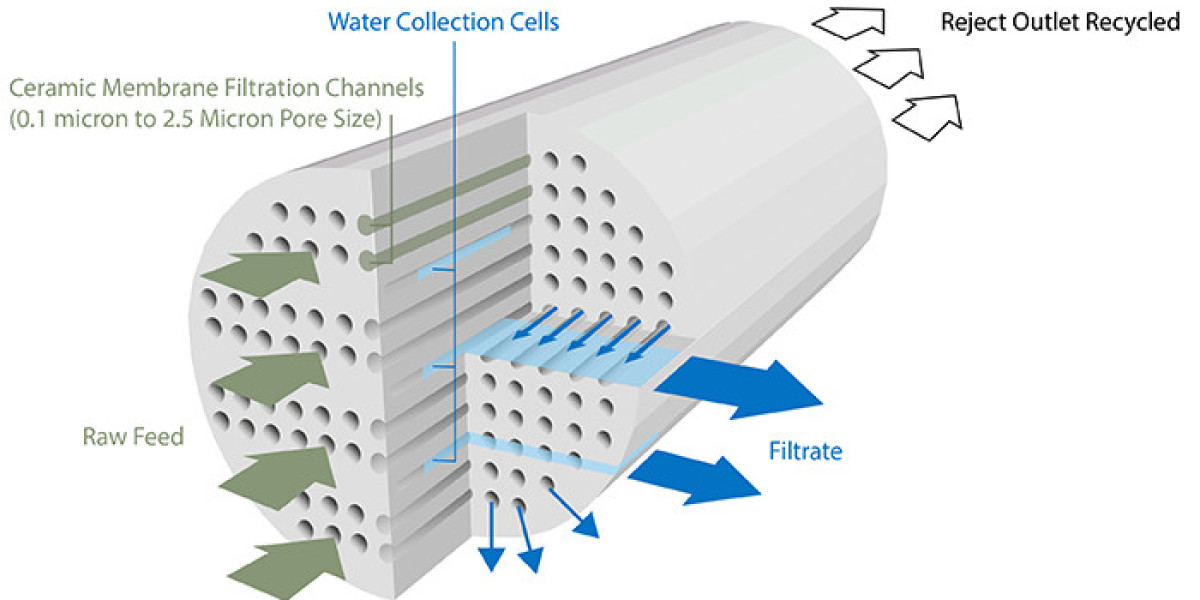Ceramic membrane wastewater treatment represents a significant advancement in environmental sustainability, offering a cleaner and more efficient solution compared to traditional methods. This technology utilizes ceramic membranes, known for their durability and effectiveness in separating contaminants from wastewater.
Check the environmental impact of ceramic membrane wastewater treatment and explore why it's gaining recognition as a preferred choice for industries worldwide.
Understanding Ceramic Membrane Wastewater Treatment
Ceramic membrane filtration is a process that employs semi-permeable ceramic membranes to purify wastewater by separating impurities from water molecules. These membranes are engineered with precise pore sizes, allowing them to selectively filter out pollutants such as suspended solids, bacteria, viruses, oils, and dissolved salts. The result is treated water that meets stringent quality standards, suitable for discharge or reuse in various industrial processes.
Environmental Benefits of Ceramic Membrane Technology
- Reduced Chemical Usage:
Ceramic membranes require minimal chemical additives compared to conventional treatment methods like chlorination or coagulation. This reduces the overall chemical footprint and minimizes the generation of harmful by-products.
- Energy Efficiency:
The filtration process in ceramic membranes operates at lower pressures and temperatures compared to other membrane technologies like reverse osmosis. This translates to lower energy consumption, contributing to reduced greenhouse gas emissions and operational costs.
- Water Conservation:
By effectively treating wastewater for reuse purposes, ceramic membrane technology supports water conservation efforts. Industries can recycle treated water back into their processes, reducing freshwater consumption and alleviating strain on local water sources.
- Longevity and Durability:
Ceramic membranes are known for their longevity and resistance to harsh chemicals and fluctuations in temperature. Their durability allows for extended use and fewer replacement cycles, reducing material waste and environmental impact over the membrane's lifecycle.
Applications of Ceramic Membrane Wastewater Treatment
Ceramic membrane technology finds applications across various industries where wastewater treatment is critical:
- Industrial Manufacturing: Used in sectors such as food and beverage, pharmaceuticals, and chemicals for treating process wastewater before discharge.
- Municipal Water Treatment: Deployed in municipal wastewater treatment plants to improve effluent quality before releasing into natural water bodies or reuse.
- Agriculture: Utilized in agricultural applications for treating wastewater from livestock operations or agricultural runoff, reducing environmental contamination.
Challenges and Innovations
While ceramic membrane technology offers substantial environmental benefits, challenges such as membrane fouling and initial investment costs remain. Innovations in membrane design, cleaning protocols, and operational strategies continue to address these challenges, improving efficiency and reducing lifecycle costs.
Ceramic membrane wastewater treatment stands at the forefront of sustainable water management practices, offering significant environmental benefits through reduced chemical usage, energy efficiency, and water conservation. As industries and municipalities strive to meet stringent environmental regulations and sustainability goals, ceramic membranes provide a reliable solution for treating wastewater effectively and responsibly.
Embracing ceramic membrane technology not only enhances water quality but also contributes to a cleaner environment for future generations. With ongoing research and development, this advanced filtration method holds promise for further innovation and broader adoption across diverse sectors.
For industries and municipalities looking to enhance their wastewater treatment capabilities while minimizing environmental impact, IPNR Endura ceramic membrane technology offers a robust and sustainable solution.



